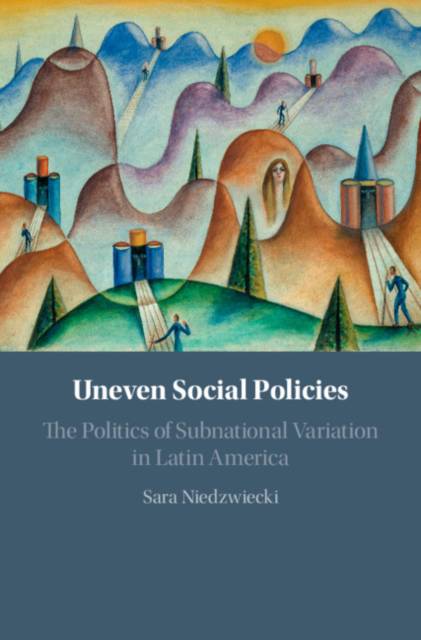
- Afhalen na 1 uur in een winkel met voorraad
- Gratis thuislevering in België vanaf € 30
- Ruim aanbod met 7 miljoen producten
- Afhalen na 1 uur in een winkel met voorraad
- Gratis thuislevering in België vanaf € 30
- Ruim aanbod met 7 miljoen producten
Zoeken
Uneven Social Policies
The Politics of Subnational Variation in Latin America
Sara Niedzwiecki
Hardcover | Engels
€ 125,95
+ 251 punten
Omschrijving
Social policies can transform the lives of the poor and marginalized, yet inequitable implementation often limits their access. Uneven Social Policies shifts the focus of welfare state analysis away from policy design and toward policy implementation. By examining variation in political motivations, state capacity, and policy legacies, it explains why some policies are implemented more effectively than others, why some deliver votes to incumbent governments while others do not, and why regionally elected executives block the implementation of some but not all national policies. Niedzwiecki explores this variation across provinces and municipalities by combining case studies with statistical analysis of conditional cash transfers and health policies in two decentralized countries, Argentina and Brazil. The analysis draws on original data gathered during fifteen months of field research that included more than 230 interviews with politicians and 140 with policy recipients.
Specificaties
Betrokkenen
- Auteur(s):
- Uitgeverij:
Inhoud
- Aantal bladzijden:
- 272
- Taal:
- Engels
Eigenschappen
- Productcode (EAN):
- 9781108472043
- Verschijningsdatum:
- 6/09/2018
- Uitvoering:
- Hardcover
- Formaat:
- Genaaid
- Afmetingen:
- 163 mm x 235 mm
- Gewicht:
- 508 g

Alleen bij Standaard Boekhandel
+ 251 punten op je klantenkaart van Standaard Boekhandel
Beoordelingen
We publiceren alleen reviews die voldoen aan de voorwaarden voor reviews. Bekijk onze voorwaarden voor reviews.











